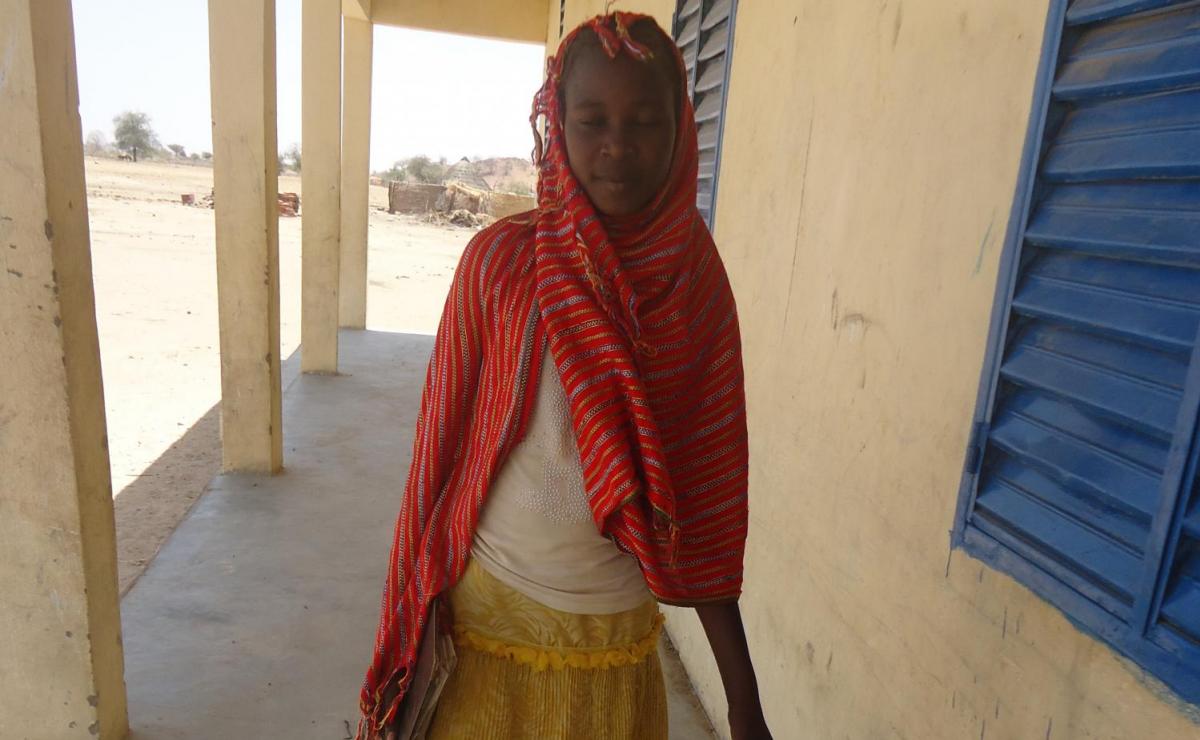LWF Chad and Church of Sweden support education in host communities

Halimé, a 14 years old girl, lives with her parents and 5 siblings in Tirti, a village near Farchana where LWF Chad implements an education project in support to refugee and host communities. Before LWF Chad intervened in the village, Halimé had to take a long walk to go to school in Nourkouni, a neighbouring village a few kilometres away.
The long walk distances are an important factor of school drop outs and when children have to go as far as Farchana to get access to education this makes going to school even more difficult. Halimé explains “some parents used to forbid their children, particularly their daughters to go to school, because they feared for their safety on the road. Other children used the long walk has a way to ditch classes and then went back home without having even set foot in the class!”
Local communities had already tried to organize classes under local traditional shelters, but Halimé says that “these were built too late, some children were already enrolled in other schools and most of them continued going there.” LWF Chad in collaboration with the local community decided to build a school in the village.
Halimé is really happy because she can now help her family while not being late for class: “in the morning I can wake up and prepare breakfast for my siblings before I go to school, and I can arrive on time for class! Before, when I used to go to Nourkouni, I was often late”
With the help received from the LWF Chad mentalities changed, children and adults have a new perception on education “Now most children go to school, sometimes encouraged by their parents, or sometimes just to be with other children […] at school we can play, we have balls and equipments…and most importantly we are being watched during the evening collective games.”
If it wasn’t for the school many children wouldn’t be able to access education, and Halimé to conclude “I want to learn, progress, and educate people in my village who don’t have my chance, I also want to be able to help my mum and my community when I’ll succeed”

